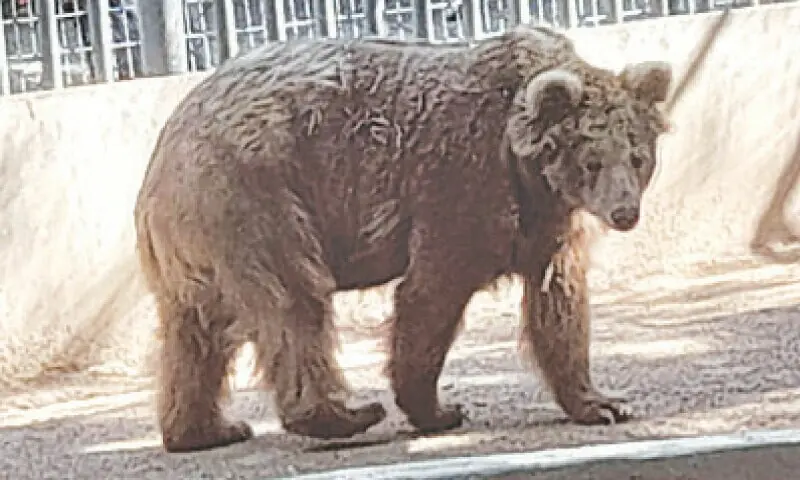High Court Steps In Over Welfare Concerns
The Sindh High Court has ordered the immediate transfer of a female bear, Rano, from the Karachi Zoo to Islamabad. The directive came after a petition highlighted the inadequate and inhumane living conditions faced by the animal.
During the hearing, the court expressed strong displeasure with the Karachi Metropolitan Corporation (KMC) and the Wildlife Department for their failure to ensure proper care for the bear. The judges remarked that keeping animals confined in small cages merely for human entertainment amounted to cruelty.
The bench further noted that there would be no harm if zoos were shut down altogether, adding that wild animals should live in natural habitats rather than in cramped enclosures.
Seven Years of Isolation and Mental Distress
Advocate Jibran Nasir, who represented the petitioner, informed the court that Rano had lived in isolation for the past seven years following the death of her male companion. Prolonged loneliness, he explained, had left the bear mentally distressed.
“She repeatedly bangs her head against the iron bars, Nasir told the court. The wounds on her head have become infected, and maggots have developed inside them. The situation is extremely painful and unbearable for the animal.
Animal welfare groups have long criticized the Karachi Zoo for its lack of resources, poor veterinary care, and outdated facilities. Several reports over the years have documented malnourished animals, insufficient enclosures, and a lack of enrichment activities necessary for their mental health.
Officials Defend Zoo Conditions, Court Rejects Claims
During the proceedings, the Senior Director of the Karachi Zoo insisted that Rano was in good condition and was being kept in a large enough enclosure. However, the court rejected this claim outright, questioning on what scientific basis such an assessment was made.
The judges observed that internationally, animals are no longer confined to cages. Instead, they are housed in natural reserves, sanctuaries, or national parks that simulate their native environment. Pakistan, they said, must move toward similar practices to ensure animal welfare and align with global conservation standards.
Ordered Transfer and Progress Report
The court ordered that Rano be handed over to the Islamabad Wildlife Management Board (IWMB) without delay. The Board is expected to relocate her to a more natural and spacious sanctuary, where she will receive proper care and rehabilitation.
The zoo administration was also instructed to submit a progress report within two days, confirming Rano’s safe transfer and updated health condition.
A Landmark for Animal Rights in Pakistan
Animal rights advocates have welcomed the court’s decision, calling it a landmark moment for wildlife protection in Pakistan. They argue that this could set a precedent for reviewing the conditions of other animals held in captivity across the country.
Pakistan’s zoos have often been at the center of controversy. In 2020, the death of the elephant Noor Jehan and the earlier global outcry over Kaavan, the world’s loneliest elephant, highlighted the poor state of zoo management nationwide.
The Sindh High Court’s ruling now renews hopes that provincial authorities will reassess the role of zoos and prioritize ethical, conservation-based alternatives.
This decision goes beyond one bear, said an activist outside the court. It represents a call for compassion, accountability, and the end of suffering for countless animals trapped in cages.















